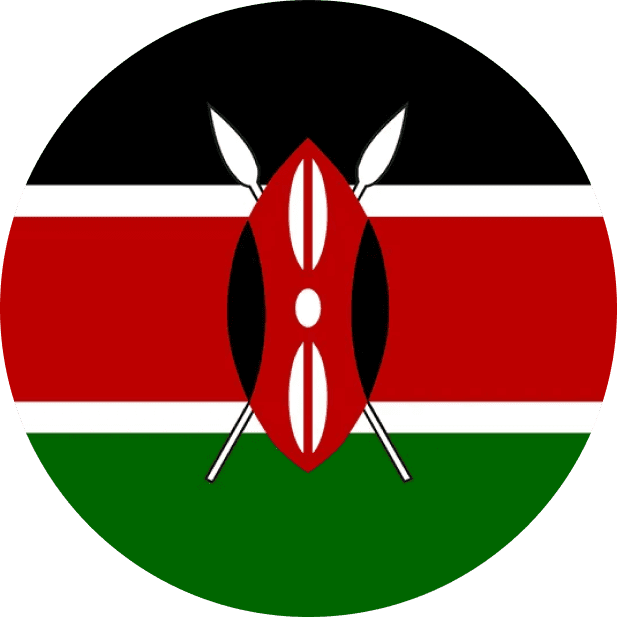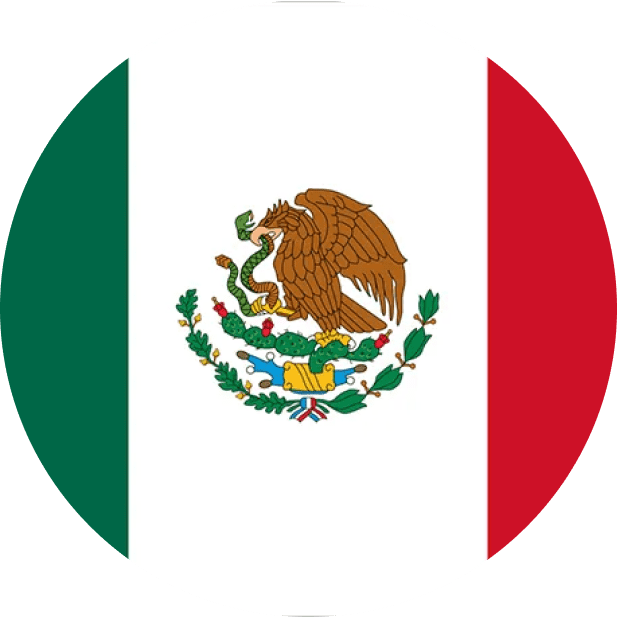About Scott Doughty

Scott is the professional coach at the co-Active Training Institute. He’s also the Chief well being officer at Radiant with the mission to transform corporate cultures to concentrate on well being for better results he’s been creating and delivering well being and mindfulness programs for large multinational organizations. We are happy to have him on our interview series and we hope to influence our viewers with his mindfulness concepts for the better.
Sumitha Mariyam

We have the pleasure of welcoming Scott Doughty today to our interview series. I’m Sumitha Mariyam Raj from the peopleHum team before we begin just a quick introduction of peopleHum; peopleHum is an end to end to one view integrated Human Capital Management Automation Platform, the winner of the 2019 Global Codie Award for its HCM that is specifically built for crafted employee experiences and the future work.
We run the peopleHum blog and video channel which receives upwards of 200,000 visitors every year and publishes around two interviews with well-known names globally every month.
Sumitha
Welcome, Scott we’re thrilled to have you.
Scott
It's great to be here Sumitha.
Sumitha
Thank you so much and going to the first question Scott…
Can you tell us a little bit about your well-being program? I mean, how did you come up with this concept of transforming corporates?
Scott
Sure, it comes from personal experience. I've spent my whole career working for fast paced, high growth, multinational, predominantly technology companies, just observing the drive for growth and progress which is wonderful economically, but also the human capital cost in order to achieve those results.
So, for one person, being part of the process, also having my own experiences of burning outs and probably contributing to the burnout of some of my team. I decided to look for better ways to lead and better ways that we can run organizations that achieve results, but not necessarily because of those people.
Sumitha
Okay, so, um, that's interesting, having some time spent with the corporates and then coming up with something. So, there are a lot of things around employee experience and engagement, especially at this time. So according to you…
How do you think an organization can improve its employee experience by including aspects of mindfulness and well being?
Scott
Well, if you think about the employees' experience, it's very much driven or influenced by your manager, the leadership as such but particularly your own manager. To answer your questions.
But to speak, I guess, more broadly about my philosophy. It's phenomenal when you see leaders in an organization valuing well being initially from their own perspective and I guess ship bearing with their people, I guess where they're at and what they're prioritizing or trying it's quite magical to see the implied permission that is given to employees to do the same. I felt like it more than ever. That's what's needed, you know, to answer your question.
That's one way that you can improve the employee experiences, deciding at...
“The company where well-being actually sits in terms of your values and making it something that people are excited about and driven towards because the leaders value it, the leaders are practicing it because the company wants everybody to be well because we know that's going to lead to better results”.
I feel like moving closer towards that kind of reality is really important right now.
Sumitha
Yeah
Scott
Just to add to that, I just had this final thought just before I finished. There is, I think, compassion; how can we be extra compassionate right now, you know? I can talk more about that. But I would like to invite your response.
Sumitha
I just wanted to ask you I mean, you know, like from your understanding to help us better understand your last answer. I think if you can tell us a little bit about the most important problems that you help organizations deal with.
What are the kind of struggles that they have and they come to you for help?
Scott
Okay. So Deloitte did some research about burnout and in the study, which was based on 1000 corporate professionals in the U.S, 77% of them experienced burnout at some point in their current role. So I'm particularly focused on burnout prevention. A lot of my work historically, when I first shifted out of corporate, you know,
“Doing the work versus being interested in how we work and in helping people that had already experienced burnout and helping them to recover.”
Where I prefer to work is on burnout prevention.
So we have that data from Deloitte, you don't have to look too far in any organization to find quantifiable and anecdotal evidence that people are really stressed and overwhelmed. Some organizations are just designed to encourage that without really any sense of having not to be that way. So I think that's a big problem. And it leads to terrible things.
Even in really white-collar organizations where people just can't take it anymore, you know, at an extreme. But it goes all the way down the spectrum, too. A lot of people are sort of suffering in silence or getting sick, feeling disconnected, and disengaged from their work so that's the big problem. “I work with companies to remedy this.”
Sumitha
That's interesting. I mean most of the organizations don't try to understand what is actually keeping them from coming to the office or keeping them from coming to the office continuously.
We don't know if it's because they love the work, or we don't know if it's just for the money or for something else. So I think it's important for organizations to understand why their employees keep coming in and how they feel inside. So keeping that in mind Scott, how would you say that, given the situation of the Coronavirus, the managers are not seeing any of their employees working in the office, and it's a virtual center all over…
How would you say organizations can improve employee well being when we have a remote workplace set up right now?
Scott
Yeah, I think there's a lot of tactical things you can do in regards to well being, and we're seeing a lot of it, like organizing yoga, workouts, things like that. That's kind of easy to deploy. Um, and before Covid, my response would be rather the same.
It comes down to the relationship between the employer and their manager. I think that is an area of really high importance. If there's a connection there where there can be some vulnerability that is your first line of defense at understanding how an employee is really hoping and what their needs are, beyond the vanity of an answer that's going to appease the boss and the checking calls.
“So I think extra emphasis needs to be on helping managers cultivate more connected relationships with their people and almost coaching them to need to lead the way in terms of being resilient and confident and remaining visionary and showing the path forward.”
This is a beautiful experience, So time to show humanity.
Another thing that comes to mind is that I've worked for lots of large companies where directors might come down that don't make a lot of sense. I’m guilty of running with things like that where in my mind there was a better way, you know, this particular policy or a protocol may not be good for the well being of my people.
I think this is a time where managers need to be really careful about ignoring their own gut feelings about how things are being done and, you know, making sure that their people are well, even if it comes at the cost of something that seemed really important.
This is a time for managers to be their most human, and connect with their people with compassion and understanding. I think the simplest of things that we can do is just make sure that those conversations we had are really checking in and sincerely caring about people.
Before we jumped on the call, I was meditating, and I had this insight. We've always had this, well, I've always had this disclaimer between economic prosperity, the growth of the business, work and well being.
The thought that I had was, you know if you're trying to decide what's more important we just have to look at this current situation we're in. We've decided to effectively shut down the economy for the well being of people. So I think you know that debates answered through this experience that people come close, that's good enough for every government on the planet.
Then as a manager, I think using common sense and speaking out if you think something could be putting your employees at risk or whether you want to take extra care of a particular important employee. Then I think this is the time for that.
Sumitha
Yeah. I think a lot of organizations make mistakes on formulating theories on papers and policies and they think it’s rational, but it's just not really people-friendly. So I think this is a highly sensitive time to really take care of the employees. So I completely agree with you on that. So we've had a lot of opinions from influencers and HR professionals say that the concept of the future of work is right now. I would like to understand your thoughts on the concept of the future of work.
We're in a very unexpected place and everyone in our world is like, this is the future of work. What is your opinion on that? Do you have in your mind an ideal workplace culture for the future?
Scott
I'll just share what comes to mind for me when I think about the future of work, and it's probably not gonna be referencing any of the other opinions out there, but when I think about that idea, long before Covid, we had a lot of commentary around Fourth Industrial Revolution, growth in AI, the singularity, which is due to come in the next 10 to 20 years.
I've always believed that through this transformation, a crisis is literally a transformation many people are gonna be forced to look at, you know, other forms of employment this is not necessarily a terrible thing. It may be painful in the beginning. I am very empathetic to people that are struggling, but I think this was kind of on the path.
“So where I'm getting to is I feel the future of work presents a huge opportunity for more people to actually do work that they're passionate about.”
I have been thinking about how many people right now would be questioning what they're actually doing. Full stop. I hope that the vast majority of them are very happy with decisions they have made and the profession that they have chosen. it's not always change, or you can reconnect with your mission of your business and your role, the work you do.
If I imagine the future of work, more people would be doing work that they're truly passionate about and being rewarded handsomely for it. I think there's a whole piece of the moment around realizing who's really valuable.
I think that it would be interesting to see if good can come from that, Um, all the people working on the front lines, for example. I think that the culture of the future of work is really taking this current situation where we're reconnecting to humanity and kind of prioritizing that and making that a formula for success going forward. This whole experience will.. as far as I know, everyone's a lot of people I'm talking to is still very busy.
We're getting things done, work still going on. So I'm hopeful that all the good that comes out of this experiment, this giant work from home experiment will fuel a really interesting more to live in the future where we're going back to have humanity but we're bringing incredible technology with us and we're able to use it to build and grow incredible companies and company cultures.
Sumitha
Yeah, we're dependent on technology more than ever now, because we're all working from home. So what do you think..
How important of a role will technology and digital make the inclusive workplace of the future? What are your thoughts on that?
Scott
When you say inclusive, you're talking about including everyone across societies?
Sumitha
Yes.
Scott
….Yeah, well, I mean, I think this is a pretty simple question, technology will play an incredible role. I'll never forget the first time I jumped into Uber and my driver was deaf. And, you know, we're still able to communicate. So I think that was a few years ago. It's exhilarating to think about what we will be able to do with technology. There is soon that will make it so much more inclusive. I think, yes, technology's gonna play a huge role.
On the flip side, I feel like the last few years and leading up to now have been what I would call like an archaic revival. This really craving for return to what's really important.
We started seeing people kind of... this whole digital nomad trend, people sort of going back to the way we may have lived centuries ago. I'm just better at technology. And true craving for human connection that everybody's feeling right now, you know, everybody's feeling it. So I think technology will continue to play a huge role but we're gonna invent better ways to bring human connection through technology if we can’t meet in person.
I think we're gonna see radical advances in telepresence where this whole experience that we're having right now, Barzoon will look like a pretty story and everybody will be able to participate. That's my kind of vague view of how technology will influence the future of work in inclusion. I'm excited.
“I think what we're doing now is not the future of work. It's guided investment and energy into a very interesting direction.”
Sumitha
Yeah, that's right. Like we're taking our first steps to something very beautiful and exciting. You're very right about that. And so, um, shifting our focus to the workforce. We have a lot of millennials coming to the workforce right now. So in this world the workplace is full of millennials and attention spans are definitely decreasing.
How would you advise millenials to manage time effectively with your concepts of mindfulness and well being?
Scott
Yeah, it's an interesting question, and it steps outside of mindfulness. I mean
“Mindfulness is the key to great self awareness around what's important, and that's quite useful in terms of prioritization”.
So what I would advise first and foremost is this. There are two main things. One is you need to decide how you're going to use your time. You need to plan your day otherwise it'll just be absorbed with media consumption and fire fighting so this is very practical.
There's a great book called "Indistractable" that I recommend every millennial to read and the rest of us. There’s a point in it that says “you don't know what you're distracted…. “if you haven't planned your time, you don't know what you distracted from” something along those lines and it really got me thinking.
Distraction isn't just playing on Instagram. It's not distraction unless you know what you're meant to be doing during that time. So plan your time like literally be methodical about it, like how each hour should be spent. I always advocate doing that, the most important work, particularly first thing in the morning.
The other really important is, very simply removing the temptation of your phone. It's that simple, you know, like if you're not with your phone even then you are unconsciously thinking about it. So if millennials really want to manage their time whatever they choosing, when they're going to do it, the work that needs to be done, knowing exactly what's most important and putting the phone aside so they can just focus on that work. It's kind of back to basic stuff, but I found that to be super effective, you know, no willpower required. Just liberate yourself from the temptation.
Sumitha
Yeah, that's wonderful. And I think the last point is like, very important. If the phone is near you, whatever you do is with a slight amount of distraction, you'll always tend to look at that. And you know, what is that light? What is that notification? Who texted me? So that is always there. So that was wonderful. And for our last question…
Scott, if there are any last important soundbites that you would like to leave our viewers?
Scott
I've just had a thought that you know, in regards to managing time and choosing what's important. I think it's really important to understand what is expected of you, particularly as a young person coming into a company even more so during this environment, getting really clear about what your management expects and creating an agreement around it that is gonna help you prioritize. You know, it's super important. There is so much noise out there, you know, on LinkedIn, competing for our attention trying to help us through this.
Coming back to what's really important right now for your own well being and that of the people around you work,
“Being really clear on what's expected and bringing the focus narrow to that. Doing what needs to be done, setting aside time for that, planning time in your calendar to look after yourself, whether it's meditation, physical activity, these sorts of things are part of your work day as well. So schedule it in your calendar and do it.”
I think if we build basic routines around, you know, the simple model that I use, sleep being the foundation like I try to get seven hours. That has been demonstrated to be fundamental, particularly for young people. They so need to sleep. Movement is critical every day, do something, whether it's 20 minutes or longer.
Mindset at the moment it's very easy to fall into a fear based victim mentality around what's going on. Um, it's okay to feel this discomfort at the moment. I think it's actually a good thing for many of us to learn to feel uncomfortable.
But don't see them there for too long. You know this. Ah, if you look at history, whenever we've had a situation like this, which was, I think in the fifties and in 1918 with Spanish flu the following generation, the following decade was astronomically, economically incredible. So we had the roaring twenties. We had the swinging sixties. You know,
“I'm very confident that once we navigate through this, it's gonna be an absolutely booming decade, you know, the 2020.”
So make sure that you remember that and know that this is only temporary. Look after your mind. Physical activity, nutrition is also very important. I think just keeping routine and trying to incorporate some better food into your diet. Have fun cooking. I've really been impressed by so many of my friends that became Gordon Ramsay kind of overnight and learned to love cooking. So that's on my list of things to embrace during this period.
Well being is actually more important than our work. If we look after our well being, we're going to be able to work much better and for much longer. So if you have aspirations to rise up in the corporate world or whatever your pursuit is, you know well-being is fuel for your performance, and the world has given you permission to look after your well-being.
So my final thought would be to pick one thing that you want to try, whether it's learned to meditate, or try yoga or whatever it might be. Have a meaningful conversation with someone and let them know how you're going. Just start with one thing and to see how you go, see what the result is and go from there.
Sumitha
Yeah, I think it's very important to do that. I mean, have one thing that you can rely on when you want some time off for yourself. Be it sports or the news, the reading or cooking whatever. I think when you work for the lot of hours and you want to be with yourself, I think it's important to have that one thing that you can always sit back and do.
That is wonderful. And I really loved how you were explaining, you know, starting from not working for endless hours but understanding what is expected of you and scheduling your time, sleep food and everything around it? That was wonderful. Thank you so much for that.
So Scott, I had a wonderful experience, I learned a lot of things today especially from the last time. So that was wonderful and I personally loved it. Thank you so much for the last, you know, few minutes half an hour of your time. I look forward to keeping in touch with you and we'll be letting you know about all the links as soon as we publish the videos and the blogs. So thank you so much for coming to our interview series. I hope to keep in touch with you.
Scott
Thank you so much for having me. It was wonderful. Thanks a lot.
Sumitha
Thanks a lot.



































.jpg)
![How to stay relevant during a crisis - Rita McGrath [Interview]](https://assets-global.website-files.com/62d84b3d3ba446b2ec041a19/62d84b3d3ba446881d043992_Untitled%20design%20(13).png)
![Transforming adversity into opportunity - Rhett Power [Interview]](https://assets-global.website-files.com/62d84b3d3ba446b2ec041a19/62d84b3d3ba446eee4043850_untitled-design-(4)_optimized.png)












